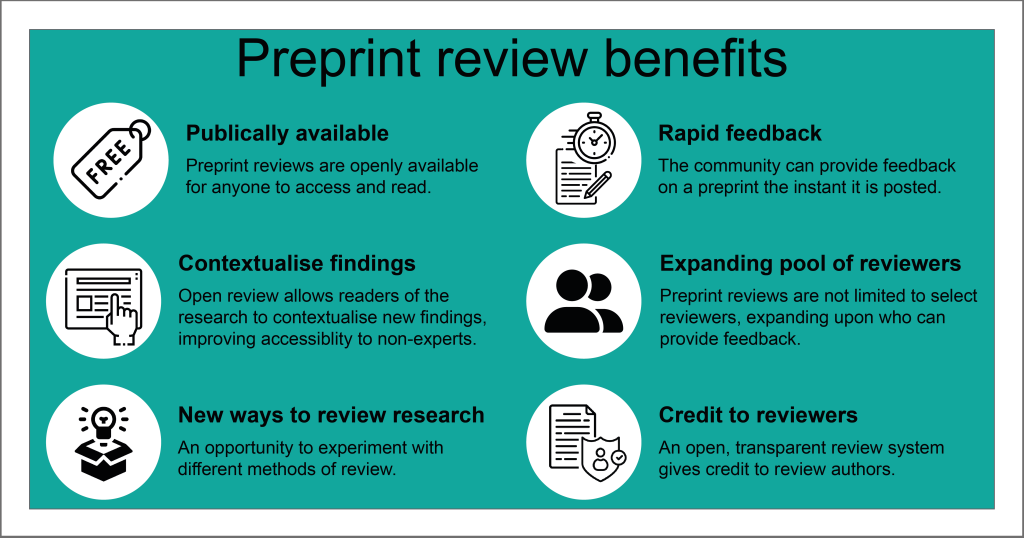Code
import requests
import locale
import re
from typing import Optional
import datetime
from IPython.display import Markdown
locale.setlocale(locale.LC_ALL, "en_US")
baseUrl = "https://api.rogue-scholar.org/"
published_since = "2024-01-31"
published_until = "2024-02-06"
feature_image = 0
include_fields = "title,authors,published_at,summary,blog_name,blog_slug,doi,url,image"
url = (
baseUrl
+ f"posts?&published_since={published_since}&published_until={published_until}&language=en&sort=published_at&order=asc&per_page=50&include_fields={include_fields}"
)
response = requests.get(url)
result = response.json()
def get_post(post):
return post["document"]
def format_post(post):
doi = post.get("doi", None)
url = f"[{doi}]({doi})\n<br />" if doi else ""
title = f"[{post['title']}]({doi})" if doi else f"[{post['title']}]({post['url']})"
published_at = datetime.datetime.utcfromtimestamp(post["published_at"]).strftime(
"%B %-d, %Y"
)
blog = f"[{post['blog_name']}](https://rogue-scholar.org/blogs/{post['blog_slug']})"
author = ", ".join([f"{x['name']}" for x in post.get("authors", None) or []])
summary = post["summary"]
return f"### {title}\n{url}Published {published_at} in {blog}<br />{author}<br />{summary}\n"
posts = [get_post(x) for i, x in enumerate(result["hits"])]
posts_as_string = "\n\n".join([format_post(x) for x in posts])
def doi_from_url(url: str) -> Optional[str]:
"""Return a DOI from a URL"""
match = re.search(
r"\A(?:(http|https)://(dx\.)?(doi\.org|handle\.stage\.datacite\.org|handle\.test\.datacite\.org)/)?(doi:)?(10\.\d{4,5}/.+)\Z",
url,
)
if match is None:
return None
return match.group(5).lower()
images = [x["image"] for x in posts if x.get("image", None) is not None]
image = images[feature_image]
markdown = f"\n\n"
markdown += posts_as_string
Markdown(markdown)Discovering reviewed preprints
https://doi.org/10.59350/0cp6h-62434
Published January 31, 2024 in Europe PMC News Blog
Summer Rosonovski
Preprinting has soared in popularity in the life sciences and is increasingly recognised as an excellent method to share research outputs quickly and freely. While preprints have gained popularity, an important consideration is ensuring their scientific quality. This prompted the development of platforms where researchers can comment on, evaluate, and review preprints.
New Vinyl-only Session: En el mundo de afuera (todo cambia)
https://doi.org/10.59350/7p62q-g0778
Published February 1, 2024 in Everything is Connected
Ernesto Priego
“En el mundo de afuera todo cambia” – Guadalupe Dueñas, 1958 “El cuatrapeo es parte de la improvisación; la improvisación es parte del selector”. -Arturo Villamil, 2024, friend and fellow collector and DJ It’s finally February!
The UNESCO Open Science Outlook: there is progress, but it is unequal
https://doi.org/10.59350/91td8-0bv95
Published February 1, 2024 in Leiden Madtrics
Ismael Rafols
A value-led perspective on Open Science In 2021, UNESCO approved its Recommendation on Open Science (OS). By signing this recommendation, 193 countries made a commitment to support the development of OS with a vision of science as a global public good.
Plant and Animal Genomes (PAG) 31st annual conference
https://doi.org/10.59350/2f91q-cxa49
Published February 2, 2024 in GigaBlog
Chris Hunter
PAG (Plant and Animal Genomes conference) returned to the Town and Country resort San Diego for its 31st installment this January (Jan 12-17, 2024), bigger and better than ever before! The GigaScience Press team are regular attendees of the meeting (see last years write-up), and this year members of our Editorial and Curation teams joined nearly 3000 delegates from over 60 countries.
Three new userscripts for Wikidata
https://doi.org/10.59350/2nwnz-8h307
Published February 2, 2024 in Syntaxus baccata
Lars Willighagen
Today I worked on three user scripts for Wikidata. Together, these tools hopefully make the data in Wikidata more accessible and make it easier to navigate between items. To enable these, include one or more of the following lines in your common.js (depending on which script(s) you want): mw.loader.load(‘//www.wikidata.org/w/index.php?title=User:Lagewi/properties.js&oldid=2039401177&action=raw&ctype=text/javascript’);
Using Nextcloud as project management system
https://doi.org/10.59350/m1pc3-3jb42
Published February 3, 2024 in Posts | Prof. Dr. Marco Kalz
Marco Kalz
Due to lack of good open source project management systems and deficiencies of federal solutions and lack of a local system, I have explored again Nextcloud as an open source option for project management. While an initial search mostly delivers integrations to Open Project into Nextcloud, I had the goal to model a workflow of a project fully in Nextcloud.
Scholarly blogging, now with DOIs
https://doi.org/10.59350/s8kvg-9nx69
Published February 5, 2024 in The Ideophone
Mark Dingemanse
I have been blogging at The Ideophone since 2007, and not all of it has been as ephemeral as my PhD promotor once feared. My short post documenting the etymology of Zotero is apparently the only scientific documentation of where Zotero’s name comes from; it has served as a source in Wikipedia for ages and has received over 15 scholarly citations.
New version of commonmeta-py library for scholarly metadata
https://doi.org/10.53731/918y1-v4d08
Published February 5, 2024 in Front Matter
Martin Fenner
Yesterday I released version 0.13 of the commonmeta-py library on PyPi. The major new feature is a command-line interface for all metadata conversions, and the metadata validation with the Commonmeta JSON Schema has finally been fixed. The command-line interface takes any supported persistent identifier or file as input, and returns the metadata in the desired format as output.
Please Shut Up! Verbosity Control in Packages
https://doi.org/10.59350/a7t5m-cy325
Published February 6, 2024 in rOpenSci - open tools for open science
Mark Padgham, Maëlle Salmon
We recently introduced a new paragraph to the development version of our dev guide This complements the statistical software review requirement for Bayesian software.
How to use GPT API to export a research graph from PDF publications
https://doi.org/10.59350/sqrk6-1bj22
Published February 6, 2024 in Stories by Research Graph on Medium
Research Graph
Authors: Nakul Nambiar (0009–0009–9720–9233)Zhuochen Wu (0009–0000–5642–5348) Research Graph is a structured representation of research objects that captures information about entities and the relationships between Researcher, Organisation, Publication, Grant and Research Data.
